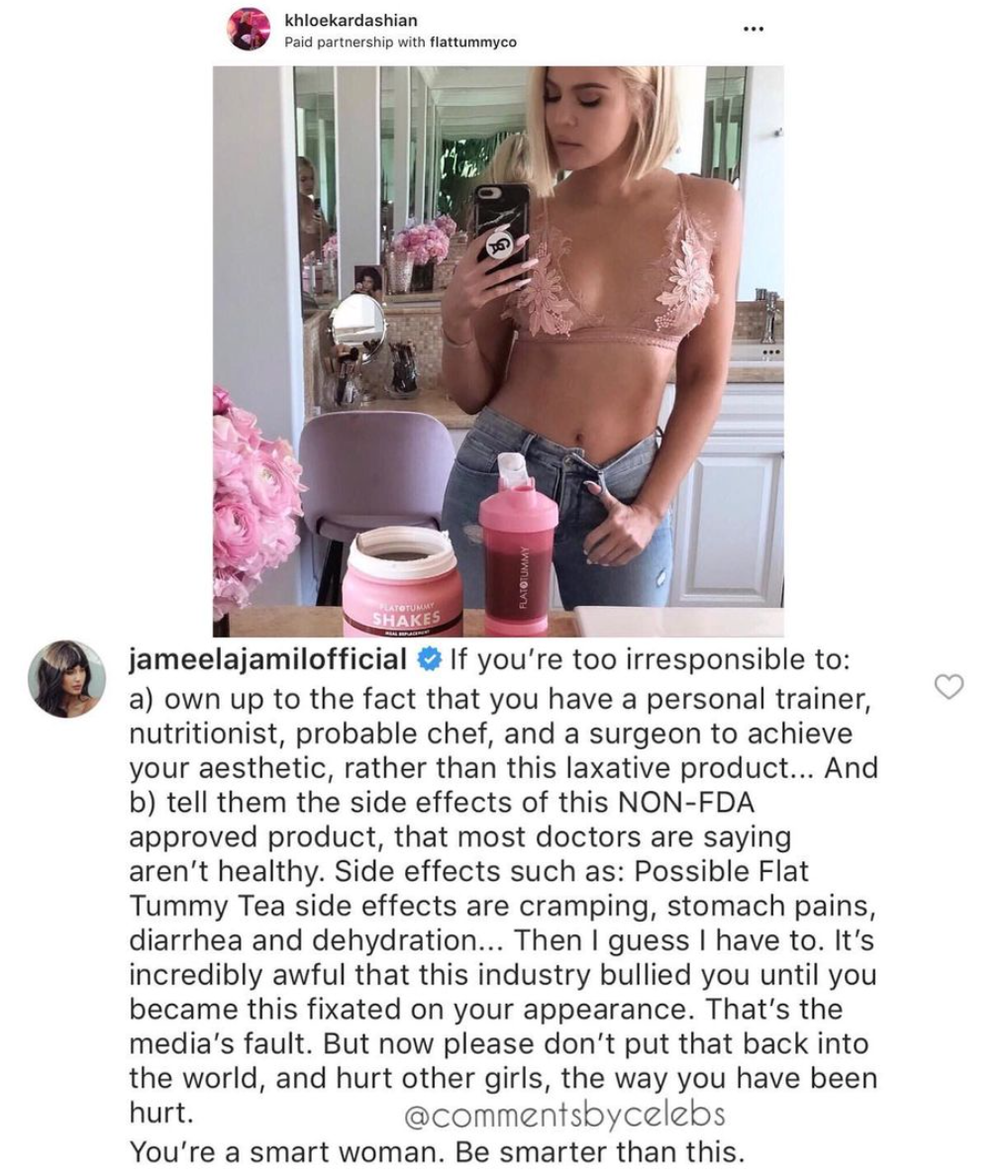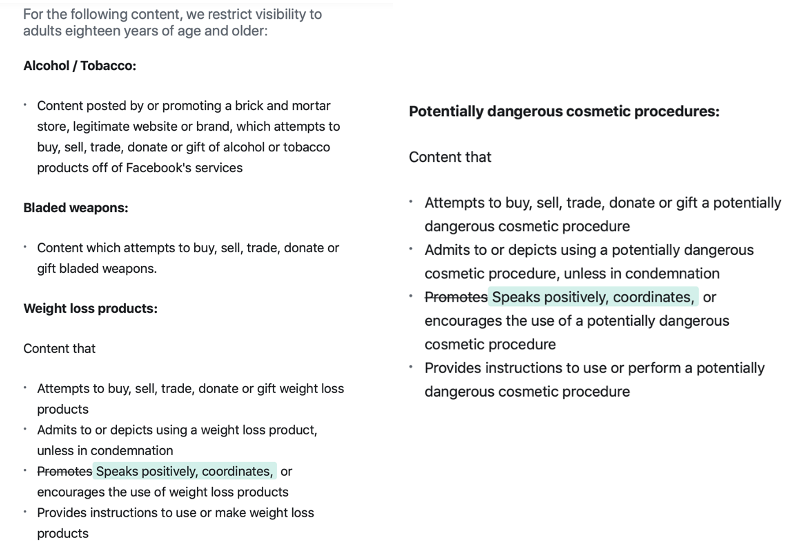Digital Influencers: selling products or selling body dysmorphia?

The disturbances social media has been causing to its users’ mental health cannot be ignored. It is of extreme importance that the private and public spheres work together to protect consumers from the unfeasible search for perfection.
10.607.227. This is the number of surgical procedures performed worldwide in 2018 according to the International Society of Aesthetic Plastic Surgery. Additionally, there were 12.659.147 non-surgical procedures conducted.
As impressive as these numbers may seem, there are reasons to believe that in 2020 the number of procedures increased drastically, and social media plays a big role in the proliferation of the desire to undergo surgery. There are two main reasons for that: filters and Influencers.
I will not go into detail about the first reason on this post, but just for the sake of clarification many filters induce people to look for plastic surgery because they depict us with lip injections, fillers, facelift, rhinoplasty, and many other procedures. As a consequence, in 2019, Instagram decided to ban augmented reality filters that promoted cosmetic surgery.
The focus of this post is the second reason: a growing number of Influencers has been using different platforms (Instagram, Youtube, Tiktok, etc.) to share their cosmetic procedures that range from simpler non-surgical procedures, such as botulinum injection, to more complex and riskier operations like breast augmentation and liposuction.
The proceedings are portrayed in a glamorized way with an emphasis on the positive aspects and no light shedding the negative ones, like postoperative care requirements and potential complications. Inevitably, their followers aspire to ‘the perfect body’, an unrealistic standard, which may lead to severe problems, like body dysmorphia.
Body dysmorphia, also known as BDD (body dysmorphic disorder), is a mental health disorder characterized by the inability of an individual to stop worrying and focusing on flaws in his/her appearance. In order to be considered a disorder, this preoccupation with appearance must cause distress or impairment in different aspects of the individual’s life, such as social, academic, occupational, etc.
The disease is an obsession which warrants exceptional measures to hide or fix the purported flaws, and the quest for perfection present all over social media obviously boosts the development of body dysmorphia.

A very famous and influential personality who has been subjected to lots criticism due to her controversial posts related to a weight loss product is Khloe Kardashian. On her Instagram, she promoted Flat Tummy Co’s meal replacement shakes, which contain natural diuretic properties that help consumers expel unwanted excess fluids and waste; in other words, it is basically a laxative. This was very irresponsible to say the least. Products with diuretic properties, when overused, can lead to dehydration, loss of potassium, muscle cramping and spasms, and even heart abnormalities.
The actress Jameela Jamil, who is very engaged in discussions related to body image on social media, called out Khloe for promoting such a dangerous product in such a misleading way; after all, as Jameela said, Khloe has a personal trainer, eats healthy, has been through many cosmetic procedures, so it is at least dishonest to say that by taking a detox shake someone can reach the same results and achieve a similar body.
Khloe’s promotion of the Flat Tummy Co’s shakes would be considered an unfair commercial practice, which is prohibited in the Member States of the European Union under Directive 2005/29.
The prohibition is stated in Article 5, and it is clear that the Instagram post was an unfair commercial practice because it is obviously contrary to the requirements of professional diligence (professionals should not recommend a product that is ineffective and dangerous), and it was very likely to distort the economic behavior with regard to the product. Also, those who suffer from problems with their body image should be considered consumers who are particularly vulnerable to the product because of their mental infirmity.
Furthermore, Khloe’s promotion was also considered misleading under Article 6 of the Directive because, as mentioned above, the presentation was deceiving, and she did not even mention the risks of the shake.
In order to protect its users, Facebook (and consequently Instagram) updated, in September 2019 and again in September 2020, the guidelines about content related to diet products and cosmetic surgery. Currently, posts that promote diet, detox, use of certain weight-loss products, cosmetic procedures are hidden from users who are under 18 in order to protect their mental health and body image.

Although the new rules are beneficial, they have many weaknesses. Firstly, the focus is on users under 18. The protection offered to users older than 18 does not include cosmetic surgery, it is limited to weight loss, and it is a very general prohibition that merely tells users not to post content about weight loss that contains a miracle claim and attempts to buy, sell, trade, donate, or gift weight loss products or supplements.
Secondly, it is not clear whether the platforms are only going to hide advertisements (which might be a problem since posts are not always tagged as such), or if they are going to restrict every single post an Influencer talks about diet and cosmetic surgery, even when they are, for example, talking solely about recovery, or when they just post a video of what they eat on a day.
A big challenge when it comes to these social media practices is the fact that there are no structured regulations on the matter. The power is mostly on the hands of the platforms and I do not believe they have not been taking all the necessary steps to protect the users from harmful content.
A more effective way to deal with the issue would be if social media platforms adopted some rules similar to the Advertisers Guidelines for Compliance with American Society of Plastic Surgeons Code of Ethics, such as restricting posts that: include statements or claims which are intended or likely to create false or unjustified expectations of favorable results; appeal to the layperson’s fears, anxieties, or emotional vulnerabilities; photographs or images portray persons before and after receiving services, which use different light, poses, or photographic techniques that misrepresent the actual results achieved.
Furthermore, new laws should be adopted in the public sphere. Regulation should not be an exclusive competence of social media platforms. Legislators should develop regulations that will be the default when a specific platform does not have a guideline on the matter. For example, in April 2019, the UK government published the so-called Online Harms White Paper; it which sets out the government’s plans for a world-leading package of online safety measures, aiming at a future independent regulation for online platforms hosting user-generated content, underpinned by a new statutory duty of care.
Moreover, enforcement of the rules should not be entirely the responsibility of social media platforms and depending on the severity of the violation, I believe that cases should be taken to civil courts so that people can be held liable for their violations and the users gravely harmed shall be entitled to compensation.
The disturbances social media has been causing to its users’ mental health cannot be ignored. It is of extreme importance that the private and public spheres work together to protect consumers from the unfeasible search for perfection.
| Written by European Law student Beatriz Vitorino do Nascimento - more blogs on Law Blogs Maastricht |